Inflation, the persistent increase in prices over time, is an economic phenomenon that affects every aspect of our lives. While moderate inflation is generally considered healthy for the economy, it can have a significant impact on the creation and preservation of wealth. In this blog post, we will explore the implications of inflation on wealth creation and discuss strategies to navigate the changing financial landscape.
Inflation erodes the purchasing power of money. As prices rise, each unit of currency buys fewer goods and services, leading to a decrease in the value of wealth held in cash or fixed-income investments. This erosion affects not only individuals but also businesses and governments. Therefore, it becomes essential to consider the impact of inflation when making financial decisions.
Inflation poses challenges for individuals who rely on savings to create wealth. Traditional savings accounts and fixed-rate investments often fail to keep pace with inflation, resulting in a loss of real value over time. For example, if inflation is 3% and your savings account offers a 1% interest rate, your purchasing power will decrease by 2% annually.
Similarly, inflation affects investment portfolios. While some assets, such as stocks and real estate, can act as a hedge against inflation, others, like bonds and cash equivalents, may struggle to generate real returns. Investors must consider the inflation-adjusted returns of their investments to ensure their wealth grows in line with or surpasses inflation rates.
While inflation can erode the value of money, it can also work in favor of borrowers. As the purchasing power of money declines over time, the real value of debt decreases as well. Individuals with fixed-rate loans effectively pay back less in real terms, resulting in a reduction of their debt burden. However, this assumes that the borrower's income or assets also keep pace with inflation.
Diversify Investments: To combat the negative effects of inflation, diversify your investment portfolio. Consider allocating funds to assets that historically outpace inflation, such as equities, real estate, or commodities. However, remember that diversification does not guarantee profit or protect against losses.
Invest in Inflation-Protected Securities: Treasury Inflation-Protected Securities (TIPS) are bonds designed to protect against inflation. These securities adjust their principal value based on changes in the Consumer Price Index (CPI), ensuring that the investment keeps pace with inflation.
Inflation can be less detrimental if your income grows at a similar rate. Invest in education, acquire new skills, or pursue career advancement opportunities to increase your earning potential. A higher income allows you to offset the impact of rising prices and continue building wealth.
Regularly review your financial plans and investments to ensure they align with your long-term goals. Stay informed about economic trends and seek professional advice when needed. Adjust your investment strategy and asset allocation as necessary to adapt to changing inflationary environments.
Inflation is a persistent force that can significantly impact the creation and preservation of wealth. To navigate its effects successfully, individuals must remain vigilant, informed, and adaptable. By diversifying investments, considering inflation-protected securities, increasing earning potential, and regularly reviewing financial plans, individuals can mitigate the negative consequences of inflation and continue on the path towards wealth creation. Remember, financial strategies should be tailored to individual circumstances, and seeking professional advice is always beneficial when making important financial decisions.
Imagine you have $10,000 saved in a bank account that pays an annual interest rate of 1%. If the inflation rate is 3%, the purchasing power of your savings will decrease over time. After one year, your savings would have earned $100 in interest, but the inflation would have eroded the value of your money by $300. In real terms, your savings would have lost $200 of purchasing power.
Fixed-rate bonds, which provide a predetermined interest rate over a specific period, are particularly susceptible to the negative impact of inflation. For example, let's say you purchased a 10-year bond with a fixed interest rate of 3%. However, during the bond's tenure, inflation averages 4% annually. As a result, the purchasing power of the bond's interest payments and the principal value would decline, leading to a loss of wealth in real terms.
These examples highlight how inflation erodes the value of money and assets over time, diminishing the wealth individuals have worked hard to accumulate. It emphasizes the need for proactive strategies to combat the detrimental effects of inflation and protect the long-term value of wealth.
The United States has experienced periods of high inflation in its history. One notable period of high inflation occurred during the 1970s and early 1980s, which was commonly referred to as "stagflation" due to the combination of high inflation and stagnant economic growth.During this time, the U.S. government and the Federal Reserve took several measures to counter the high inflation:
The Federal Reserve, the central bank of the United States, implemented a contractionary monetary policy to combat inflation. They raised interest rates to reduce the money supply, making borrowing more expensive and slowing down economic activity. This tighter monetary policy aimed to curb inflation by reducing spending and controlling the growth of the money supply.
The government also implemented fiscal policies to address inflation. This included reducing government spending and increasing taxes to reduce overall demand in the economy. The aim was to create a more balanced fiscal environment and reduce the pressure on prices. In an effort to directly control inflation, the government also implemented wage and price controls during this period. These measures placed limits on the amount by which wages and prices could increase, aiming to prevent excessive inflation. However, these controls were eventually phased out as they proved to be ineffective and created distortions in the economy.
One of the most significant measures taken during this period was the appointment of Paul Volcker as the Chairman of the Federal Reserve in 1979. Volcker pursued a strict anti-inflationary policy and implemented aggressive interest rate hikes to bring inflation under control. Although these measures initially caused a recession, they eventually helped to break the back of inflation, leading to a more stable economic environment.
These measures, including tight monetary policy, fiscal adjustments, and the decisive actions of the Federal Reserve, eventually succeeded in reducing inflation in the United States. The experience of high inflation during this period influenced the subsequent approach to monetary policy, leading to a greater focus on inflation targeting and price stability.
Inflation can have various impacts on stock markets, influencing investor behavior, corporate performance, and market dynamics. Here are some ways in which inflation can impact stock markets: Inflation can affect the valuation of stocks. As prices rise, the future cash flows and earnings of companies may be discounted at higher rates, resulting in lower present values for stocks. This can lead to a decrease in stock prices and potentially affect investor sentiment. If investors anticipate that rising inflation will erode purchasing power and potentially lead to higher interest rates, they may become more cautious and sell stocks, leading to market declines.
Different industries and sectors may be affected differently by inflation. Some sectors, such as commodities, energy, and materials, may benefit from higher prices, as they can pass on increased costs to consumers. On the other hand, sectors such as consumer staples or utilities, which may struggle to pass on higher costs, may face margin pressure. Investors often adjust their portfolios to favor sectors that are better positioned to weather inflationary environments. Inflation can impact corporate profitability in several ways. Rising input costs, such as raw materials or labor, can squeeze profit margins. Companies may struggle to maintain their profit levels if they are unable to pass on increased costs to customers. Additionally, inflation can impact consumer purchasing power, potentially affecting demand for products and services. The ability of companies to adjust prices or implement cost-saving measures becomes crucial in mitigating the impact of inflation on profits.
In response to inflationary pressures, central banks may adopt tighter monetary policies, including raising interest rates. Higher interest rates can have mixed implications for stocks. On one hand, they can make borrowing more expensive, potentially impacting corporate investment and economic growth. On the other hand, higher interest rates may make fixed-income investments relatively more attractive compared to stocks, leading some investors to shift their allocations away from equities, which can put downward pressure on stock prices.
Inflation can drive investors to seek inflation-hedging assets or safe-haven investments. Stocks of companies that are seen as inflation-resistant, such as those in sectors like real estate, infrastructure, or commodities, may attract investors looking to protect their portfolios from the eroding effects of inflation. Similarly, some investors may turn to safe-haven assets like gold, which historically has been considered a store of value during periods of inflationary uncertainty. It's important to note that the relationship between inflation and stock markets can be complex and influenced by various factors. Economic conditions, market expectations, and policy responses all play a role in determining how inflation impacts stock markets. Therefore, it is crucial for investors to stay informed, evaluate individual company fundamentals, and consider their risk tolerance and investment objectives when navigating the impact of inflation on stock markets
Inflation has a significant impact on the bond market, influencing bond prices, yields, and investor demand. Bond Prices and Yields: Inflation erodes the purchasing power of future cash flows, including the interest payments and principal repayment of bonds. As a result, when inflation expectations rise, bond prices tend to decline, leading to an increase in bond yields. This relationship exists because investors demand higher yields to compensate for the anticipated loss of purchasing power due to inflation. Conversely, when inflation expectations decrease, bond prices tend to rise, resulting in lower bond yields.
Inflation can impact the real returns of fixed-income investments. If the yield of a bond does not keep pace with inflation, the purchasing power of the fixed interest payments decreases over time. For example, if an investor holds a bond with a fixed interest rate of 3% while inflation averages 4%, the real return would be negative, resulting in a loss of purchasing power. Inflation-linked bonds, such as Treasury Inflation-Protected Securities (TIPS), are designed to adjust their principal value and interest payments in response to changes in inflation, providing a measure of protection against inflationary erosion.
In response to inflation, central banks may implement tighter monetary policies, including raising interest rates. When central banks increase interest rates to combat inflation, bond yields tend to rise as well. Higher yields can make existing bonds with lower yields less attractive to investors, leading to a decrease in bond prices. Additionally, higher interest rates can increase borrowing costs for corporations, potentially impacting their ability to service debt, which can further influence the bond market.
Inflationary environments often prompt investors to seek inflation-hedging assets. Bonds that provide protection against inflation, such as TIPS or inflation-linked bonds issued by other governments, can become more attractive to investors. The demand for these bonds may increase, potentially leading to higher prices and lower yields compared to conventional fixed-rate bonds.
Inflation introduces duration risk for fixed-rate bonds. Duration measures the sensitivity of a bond's price to changes in interest rates. Bonds with longer maturities or lower coupon rates generally have higher durations. In an inflationary environment where interest rates rise, longer-term bonds can experience greater price declines compared to shorter-term bonds due to their longer duration. Investors must consider the duration risk associated with their bond investments when assessing their exposure to potential interest rate and inflation changes.
It's important to note that inflation's impact on the bond market can vary depending on the specific characteristics of the bonds, prevailing interest rates, and market expectations. Investors should carefully evaluate their risk tolerance, investment objectives, and consider the potential effects of inflation when making bond investment decisions.
Inflation has a significant impact on the commodities market, influencing prices, demand, and investor behavior. Inflation generally leads to higher prices for commodities. As the general level of prices rises due to inflation, the cost of raw materials, energy, and other inputs used in the production of commodities also increases. This upward pressure on costs can result in higher prices for commodities, such as metals, agricultural products, energy resources, and other raw materials.
Commodities are often viewed as an inflation hedge because their prices tend to rise during inflationary periods. Investors may allocate a portion of their portfolios to commodities to protect against the eroding effects of inflation on purchasing power. As inflation expectations increase, demand for commodities as a hedge can rise, contributing to upward price movements.
Inflation can impact supply and demand dynamics within the commodities market. Rising inflation can lead to increased demand for commodities as businesses and individuals seek to secure necessary inputs before prices rise further. This surge in demand can potentially strain supply chains and result in higher prices due to limited availability. Conversely, if inflation dampens economic growth or consumer purchasing power, it may reduce demand for certain commodities, leading to lower prices.
Inflation can influence currency exchange rates, which, in turn, impact commodity prices. If a country experiences higher inflation relative to other nations, its currency's value may decline. A weaker currency can make imported commodities more expensive, potentially leading to higher prices for domestically traded commodities. Conversely, if a country has lower inflation rates or a stronger currency, it may import commodities at relatively lower costs, which can exert downward pressure on domestic commodity prices. Inflationary environments can affect investor sentiment and lead to increased speculative activity in the commodities market. Investors may turn to commodities as an alternative investment to traditional financial assets during inflationary periods. The expectation of rising prices and potential profit opportunities can attract speculative investors, leading to increased volatility and price movements in commodity markets.
Inflation can impact the behavior of commodity producers and consumers. Producers may seek to pass on higher production costs resulting from inflation to consumers, which can lead to increased commodity prices. On the other hand, consumers may adjust their consumption patterns, opting for substitutes or reducing demand for certain commodities if prices rise too rapidly.
It's important to note that the impact of inflation on the commodities market can be influenced by various factors, including global economic conditions, geopolitical events, and supply and demand fundamentals specific to each commodity. Investors interested in the commodities market should carefully evaluate market dynamics, consider risk factors, and diversify their portfolios to manage potential volatility and capture potential benefits during inflationary periods.
Related Posts:
1.WHAT IS NARRATIVE ECONOMICS? HOW STORIES SHAPE OUR BEHAVIOR? - A MASTERPIECE BY ROBERT SHILLER
2.INVESTING ADVICE FROM FAMOUS AUTHORS OF INVESTMENT BOOKS - WORK HARD & GET RICH
3.MONEY - HOW TO MAKE MONEY AND KEEP MONEY
4. COMPARING WEALTH CREATION POTENTIAL: UNITED STATES VS. UNITED KINGDOM
5. DIFFERENT WAYS TO CREATE WEALTH - WHAT ACTIONS YOU CAN TAKE TO BECOME RICH?
Older Related Posts:
1.HOW TO MANAGE MONEY - BY FINANCIAL TIMES
2.HOW TO LET OUT YOUR HOUSE WHEN YOU MOVE ABROAD
3.SHOULD YOU MOVE TO SWITZERLAND? IS SWITZERLAND A DREAM COUNTRY?
4.IS WATFORD THE MOST EXPENSIVE PLACE TO BUY PROPERTY OUTSIDE LONDON?

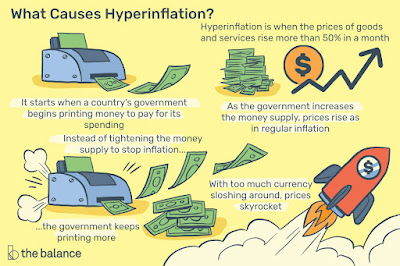
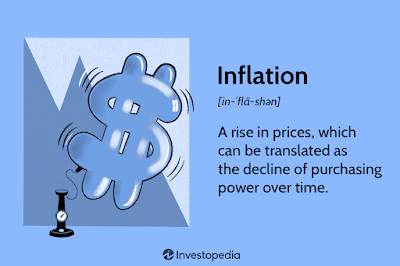


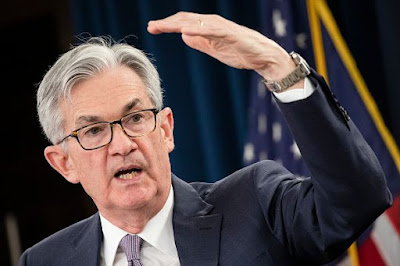
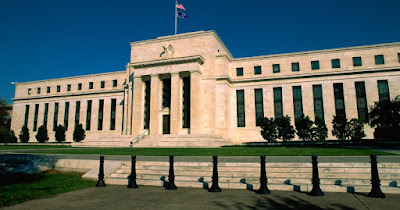
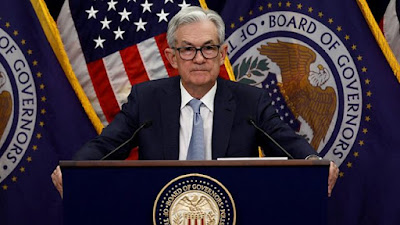
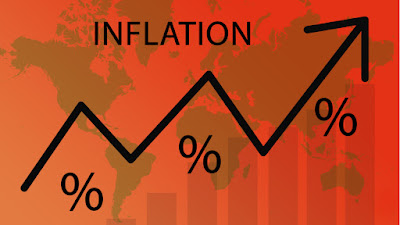

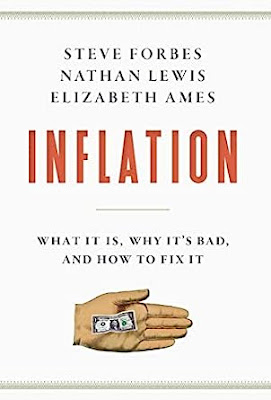


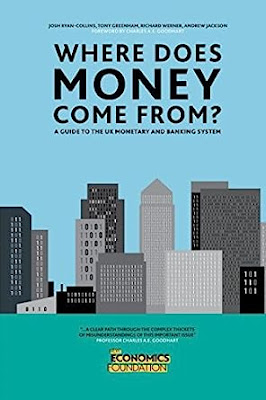
Comments
Post a Comment
Thanks for leaving comments. You are making this discussion richer and more beneficial to everyone. Do not hold back.